A search engine extension is a piece of software designed to modify the user’s regular browser. They are also known as search toolbars. In such programs, users receive alternatives to the default search engines that come with their web browsers and other applications. Their main purpose is to provide additional functionality, such as searching images, videos or news sources, or by giving the user direct access to specialized services.
Google has made its search results even more useful, as it says its algorithms can now predict which search results the users are going to click on. This means those search results get higher positioning. According to Google’s research, only around 20% of users click past page one of search results, so getting your page higher on page one is vital for targeted traffic and sales. If you have a web presence that relies solely on organic traffic like most businesses do, then this is important news as it means more work for you. Also, this isn’t Super Bowl-level time yet, but we call it the “Super Bowl effect” whereby Google keeps updating its system just before a major holiday or event.
Do you want to replace the user’s search engine with its own? If so, we have a solution for you.
Our software will replace the user’s search engine with its own, so that they can search in a way that is more beneficial to your company.
Our software is designed to be used by companies who want to improve their results on Google and other search engines, as well as those who wish to increase brand awareness.
We are a team of software engineers looking to build a search engine that replaces the user’s existing search engine with our own. The end result will be a search engine that is more relevant to the user’s interests and needs, while also being more beneficial to the user in terms of speed and power.
We have already developed the core technology that allows us to replace the user’s existing search engine with our own. We are now working on fine-tuning this technology so it can be used by anyone who wishes to use it.
Best Search Engines
1. Startpage
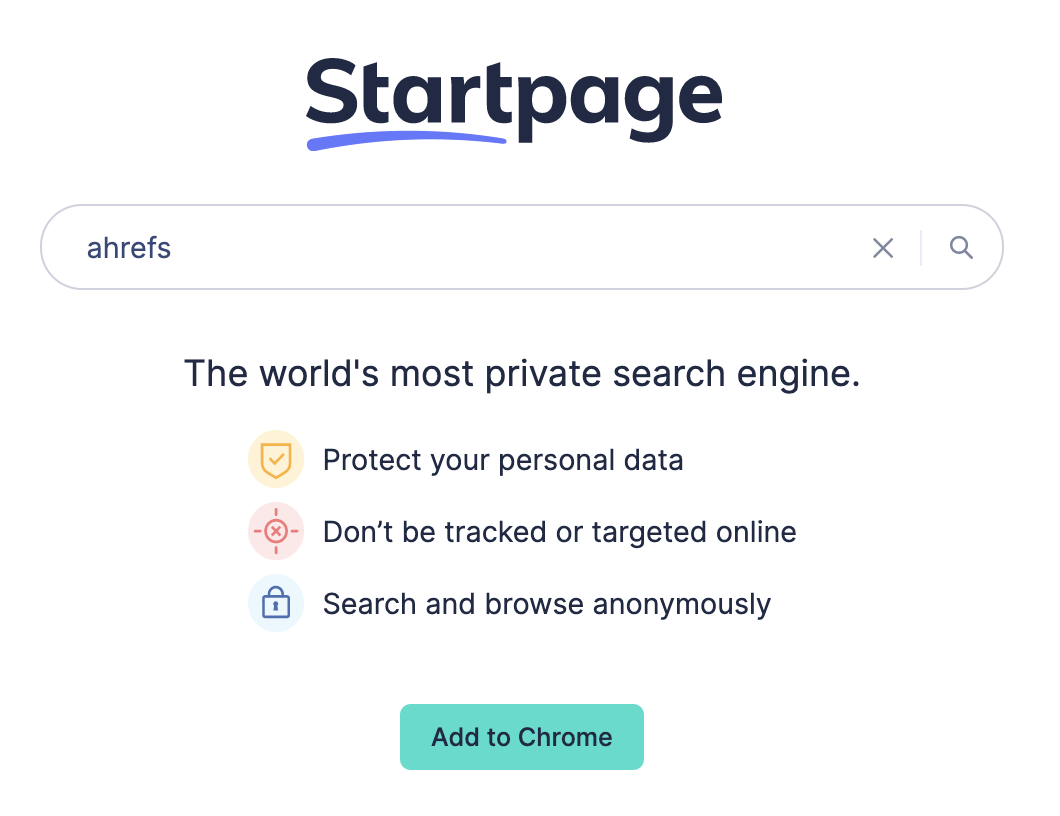
Startpage is effectively Google without the tracking. And for this reason, it takes our top spot.
According to the Netherlands-based search engine, your queries are anonymized before search results are pulled from Google. This means all identifying information is blanketed, including your IP address. No tracking cookies are used either.
Startpage also complies with GDPR, a European Union regulation that protects users’ data. Still, you should know the country is part of the Nine Eyes intelligence alliance, which shares mass surveillance data with eight countries.
Feature spotlight

The Anonymous View feature lets you visit websites from your search results anonymously for both desktop and mobile. It essentially behaves like a (free) VPN.
2. DuckDuckGo
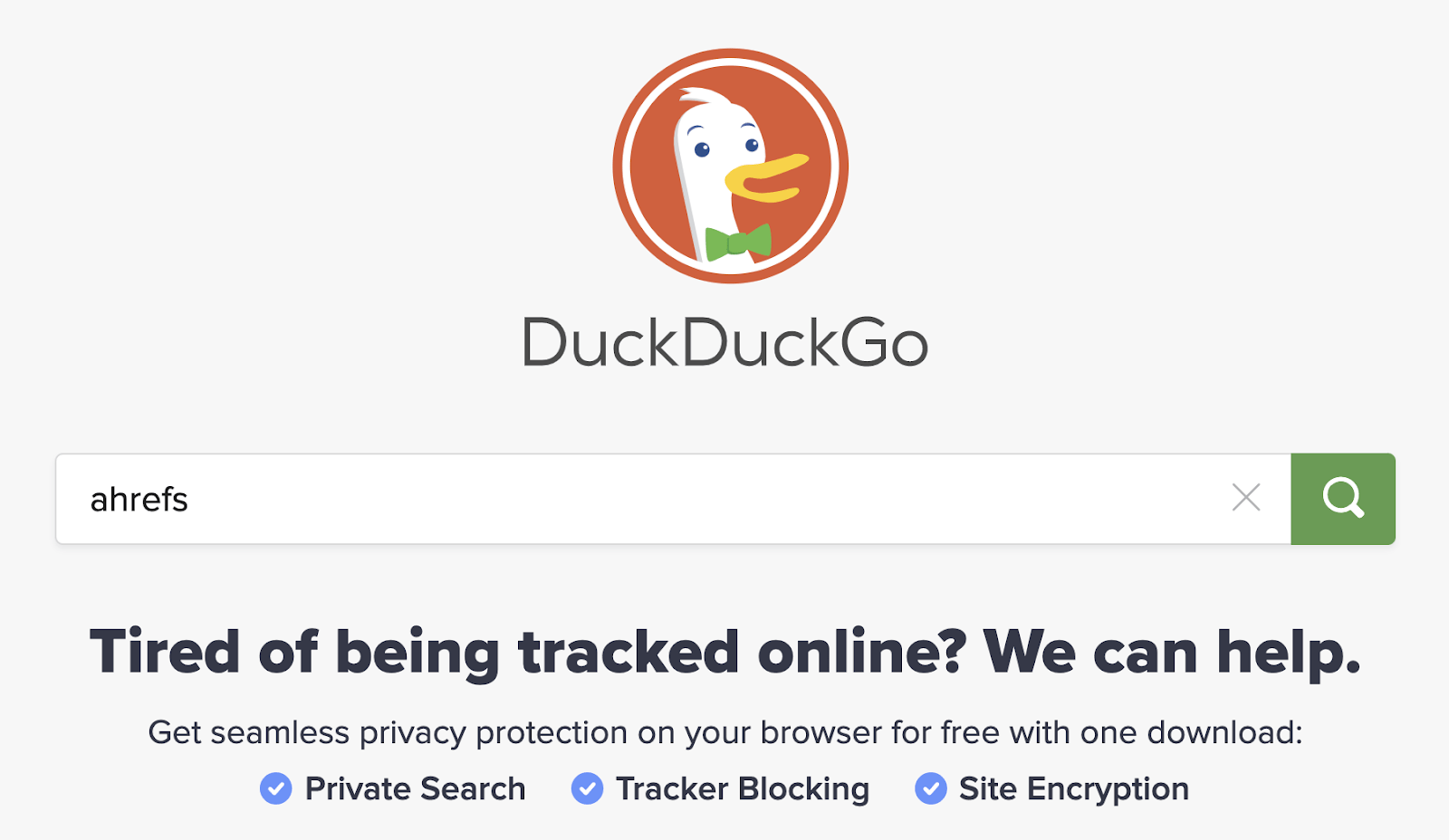
DuckDuckGo is easily the most well-known private search engine around—and the antithesis to Google when it comes to favoring user privacy. (Though, it does monetize from user searches.)
Your search history is saved in a non-identifiable manner, meaning tracking cookies and personal identifiers, such as IP addresses, are not stored.
This is a huge plus for us despite the fact that results pulled from over 400 sources, including its own crawler (DuckDuckBot), crowdsourced sites like Wikipedia and partners like Bing and Yahoo.
To test its efficacy, I plugged the same keywords into Google and DuckDuckGo—from “covid-19 updates” to “kaws marina bay.” The results were often similar. I found this to be true of breaking news stories too.
A possible downside is that DuckDuckGo is based in the U.S. and, by extension, part of the Five Eyes intelligence alliance—which frequently collects mass surveillance data from internet companies.
Feature spotlight
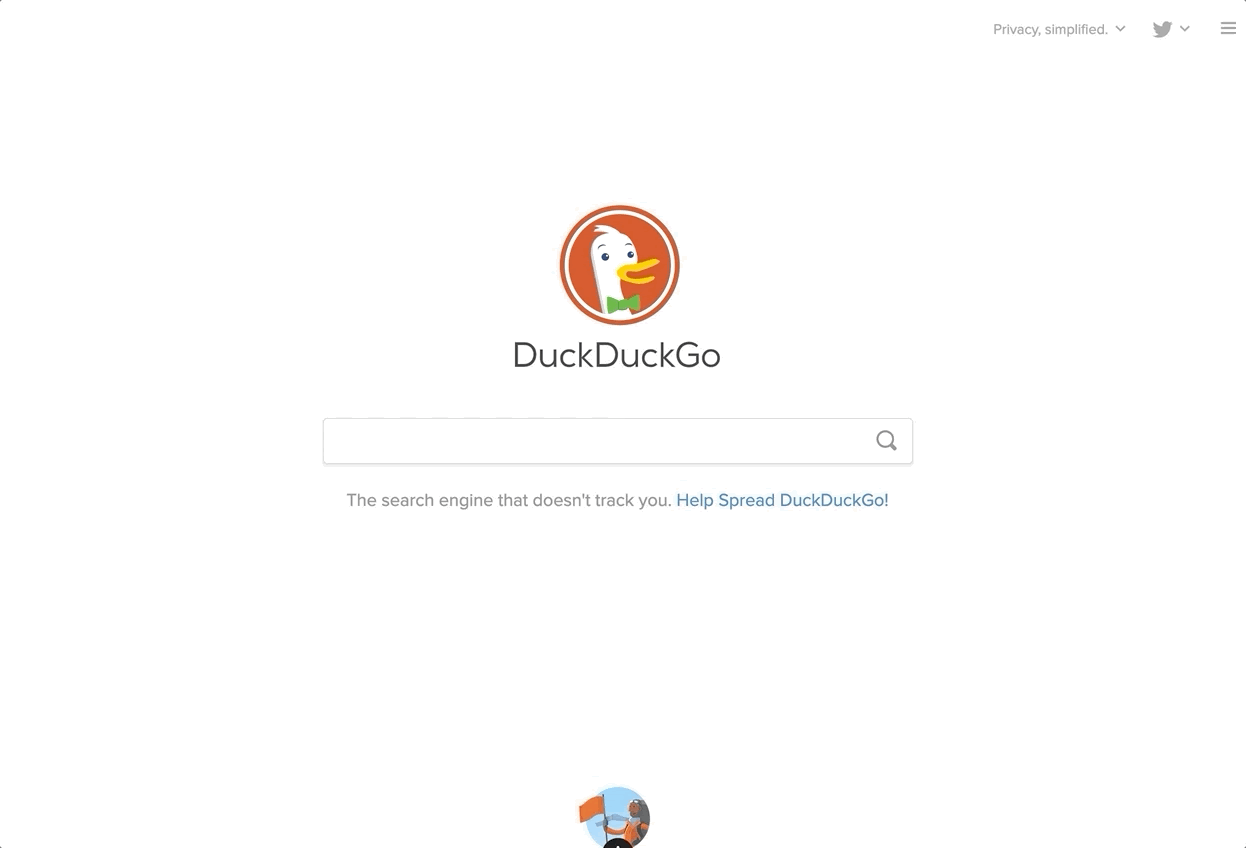
DuckDuckGo’s “Bangs” feature takes you directly to search results on other sites. For example, typing “!w” and a keyword (e.g., !w singapore) takes you directly to Wikipedia’s page for Singapore.
3. Brave Search
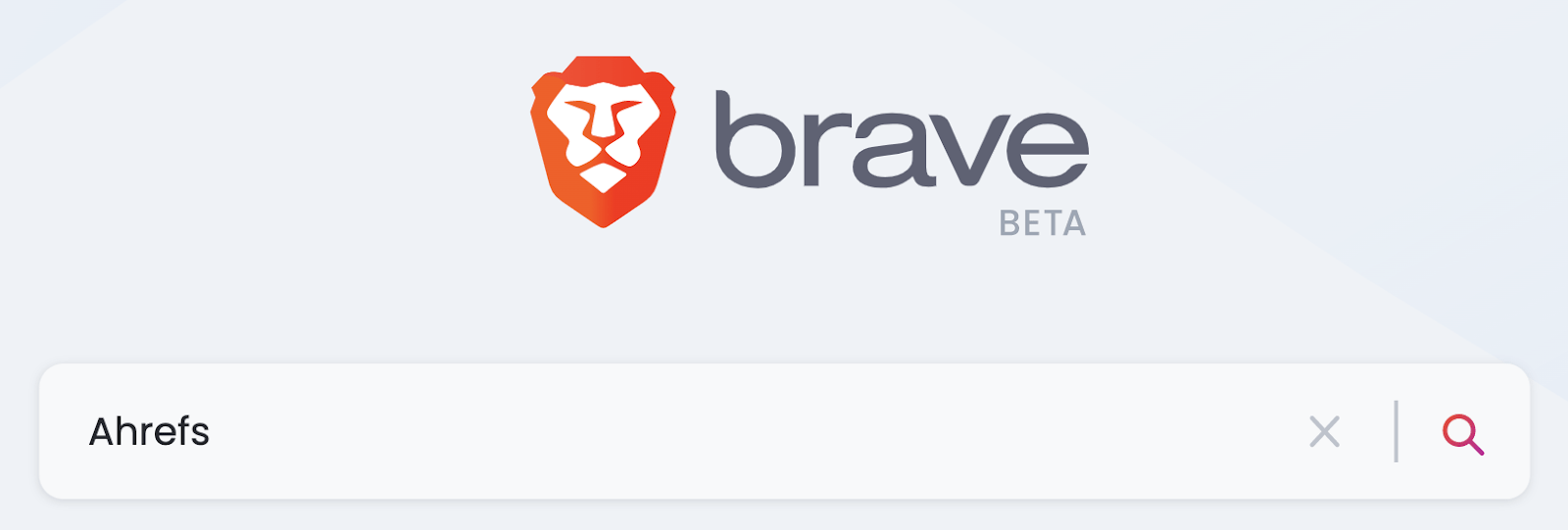
I like Brave Search for its focus on unbiased results, which it pulls from its own index. The company made the bold move of relinquishing its reliance on Google SERPs in October 2021.
Upon searching for both evergreen content and time-sensitive news, I found the results to be similar enough to Google’s—so long as you allow for anonymous local results.
For more privacy, you can choose to turn this toggle off and conduct manual searches, e.g., “things to do in [location].”

Just like the other search engines here, there is no user profiling and no personalized or targeted ads.
The search engine is part of Brave Software, whose co-founders include Brendan Eich (creator of JavaScript and co-founder of browser Mozilla Firefox) and Brian Bondy (former senior platform engineer at Mozilla).
Feature spotlight
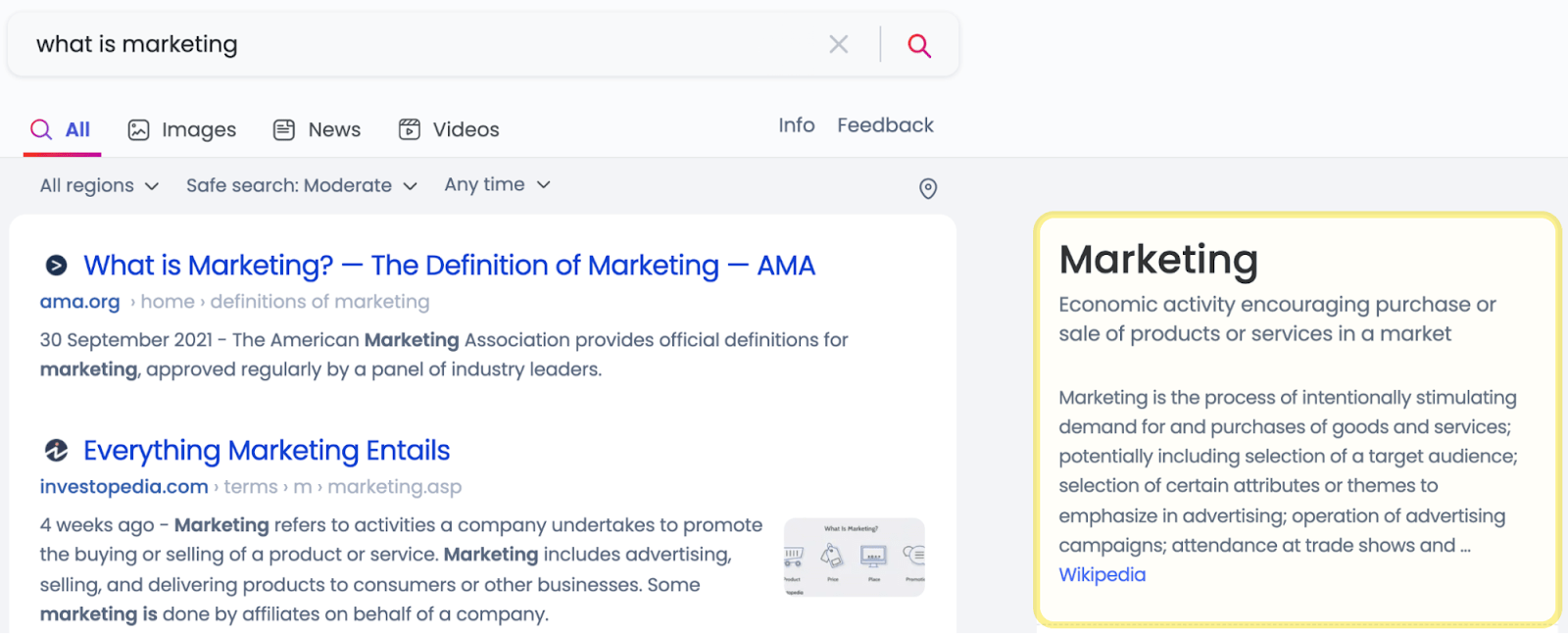
Brave has knowledge panels for quick answers to your burning questions, just like Google.
4. Swisscows
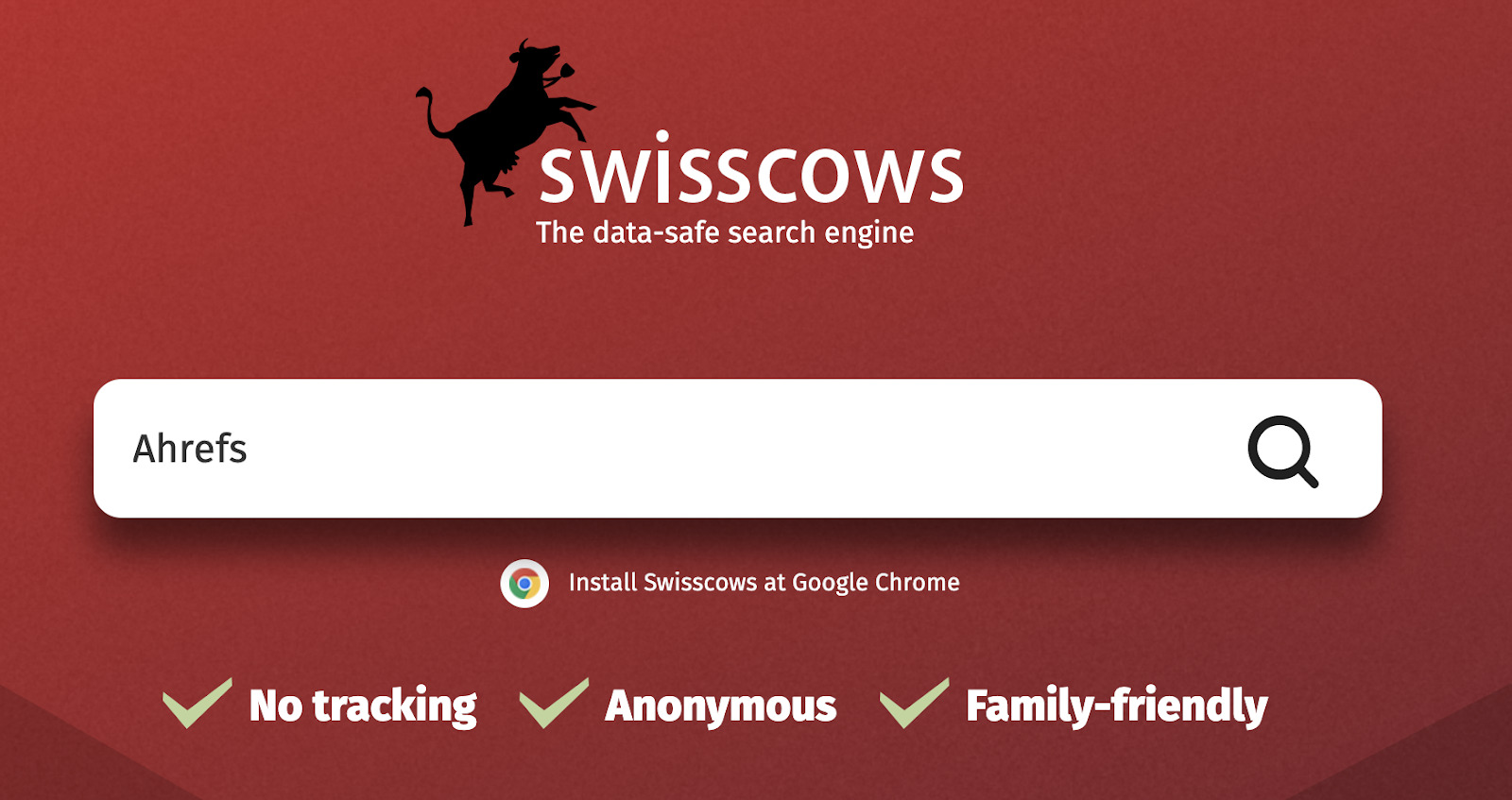
Swisscows is a Switzerland-based search engine that has its own index for German-language queries. For all other languages, results are pulled from Bing. But this isn’t an issue, given that all search queries are stripped of personal identifiers.
The search engine also omits the use of tracking cookies and geo-targeting.
While Swisscows’ search results certainly aren’t on par with Google’s, I like how family friendly the search engine is: It automatically filters out violent and pornographic search results by way of an enforced feature.
As far as privacy goes, Switzerland is not part of an intelligence alliance, but it does have a Mutual Legal Assistance Treaty with the U.S.
Feature spotlight
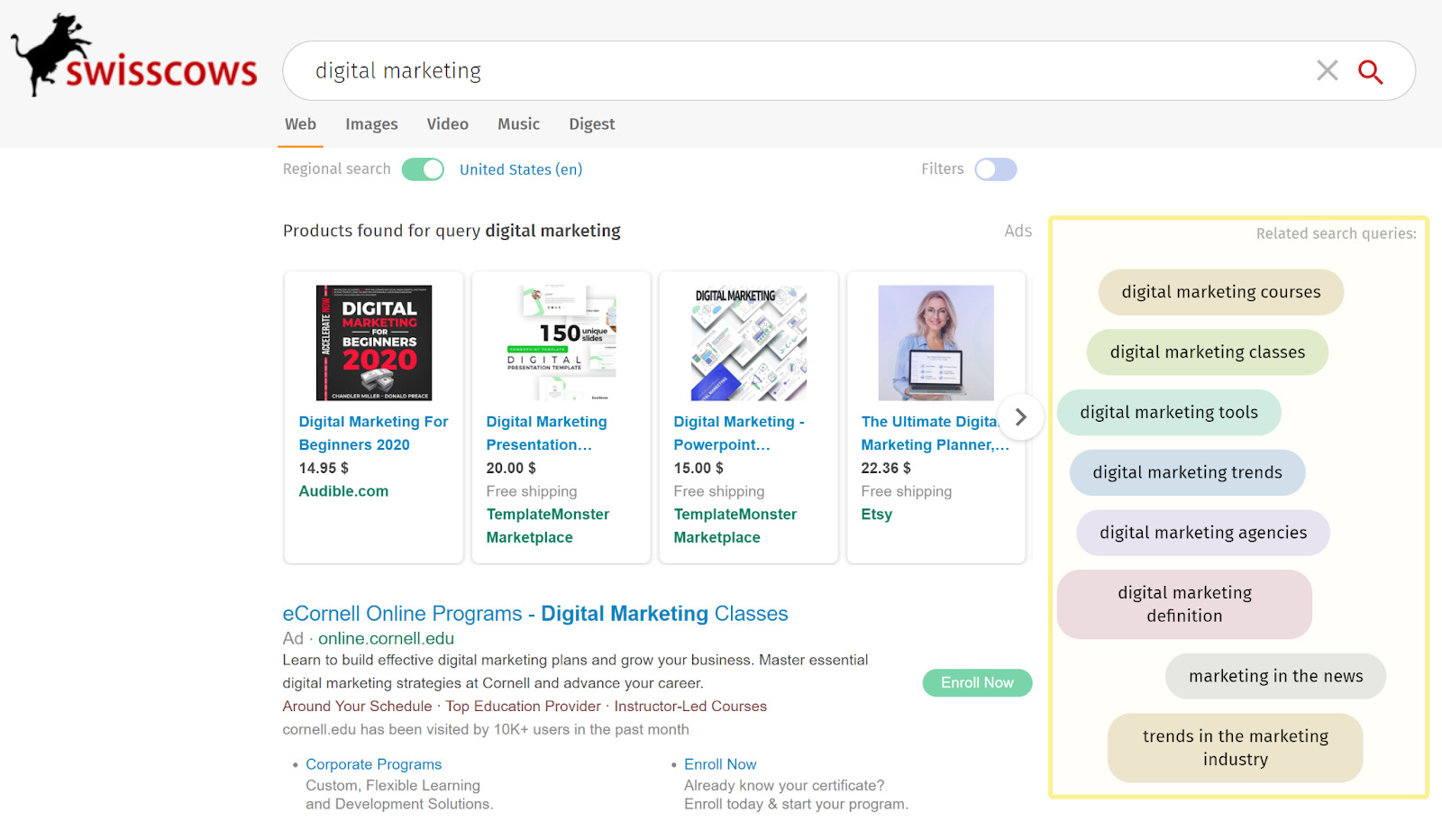
Swisscows has “semantic maps” to help you refine your searches.
5. Search Encrypt
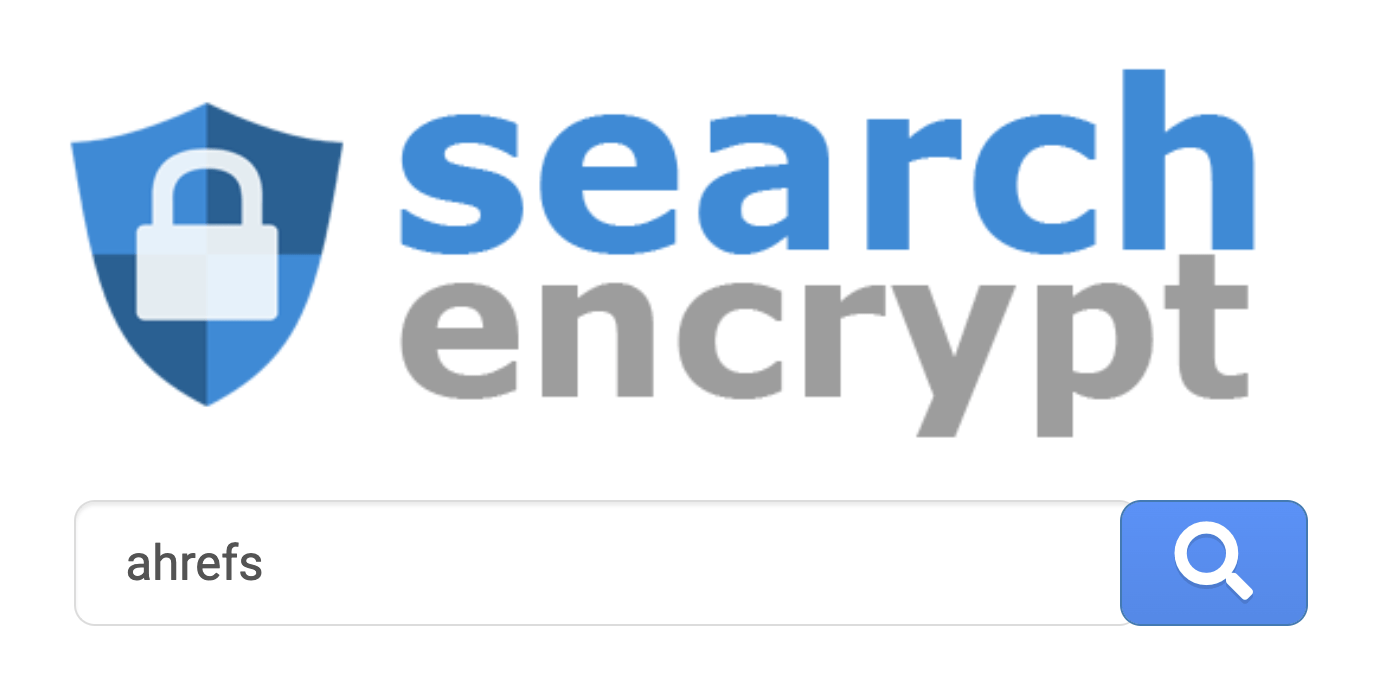
Search Encrypt sources for its results from its content partners and search engines (including Google, Bing, and Yahoo), albeit in a privacy-safe manner.
Like the other search engines on this list, Search Encrypt anonymizes search queries, doesn’t retain server logs or IP addresses, and doesn’t store tracking cookies.
When it comes to searches, your terms are encrypted locally before being sent to the servers. After 30 minutes of inactivity, your browsing history will be erased.
However, Search Encrypt does store your search data (albeit without any of your personal identifiers) to improve its product performance.
I found its search results comparable to Ecosia’s. So while it’s not quite up there with DuckDuckGo and Startpage, Search Encrypt is reliable enough to be used for all kinds of queries—whether navigational, transactional, or informational.
Feature spotlight

If you’re dissatisfied with the results or want a quick comparison, you can easily do so using the “retry this search” function located at the top of the page.
6. OneSearch
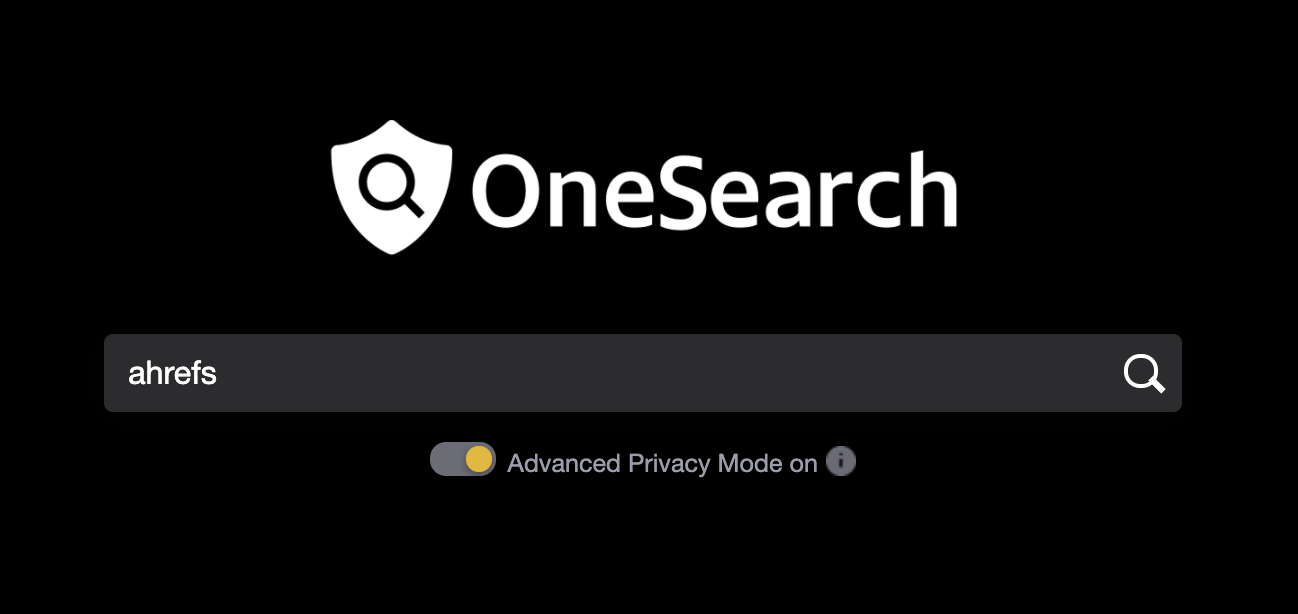
Owned by Yahoo’s parent company, Verizon Media, OneSearch claims to be a privacy-oriented search engine—with search results pulled from Bing.
No cookies are stored, and there is no sharing of identifiable personal data with advertisers. Having also perused its privacy policy, I found the search engine to be pretty safe.
On the downside, OneSearch profiles you based on query search terms and your imprecise location at the time of your search. So you may get contextual ads—or educated guesses about your interests based on your search keywords. There is no personal profiling or retargeting, though.
What I like are the little extras: the SafeSearch function, the ability to set a more specific location, and the “Advanced Privacy Mode” option (more below).
Feature spotlight
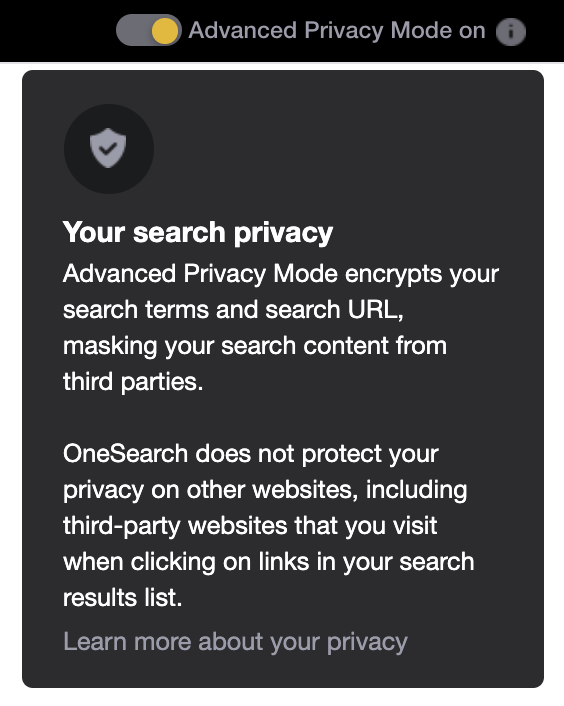
Enable “Advanced Privacy Mode” to encrypt search terms and search URLs, which will mask your search content from third parties.
7. MetaGer
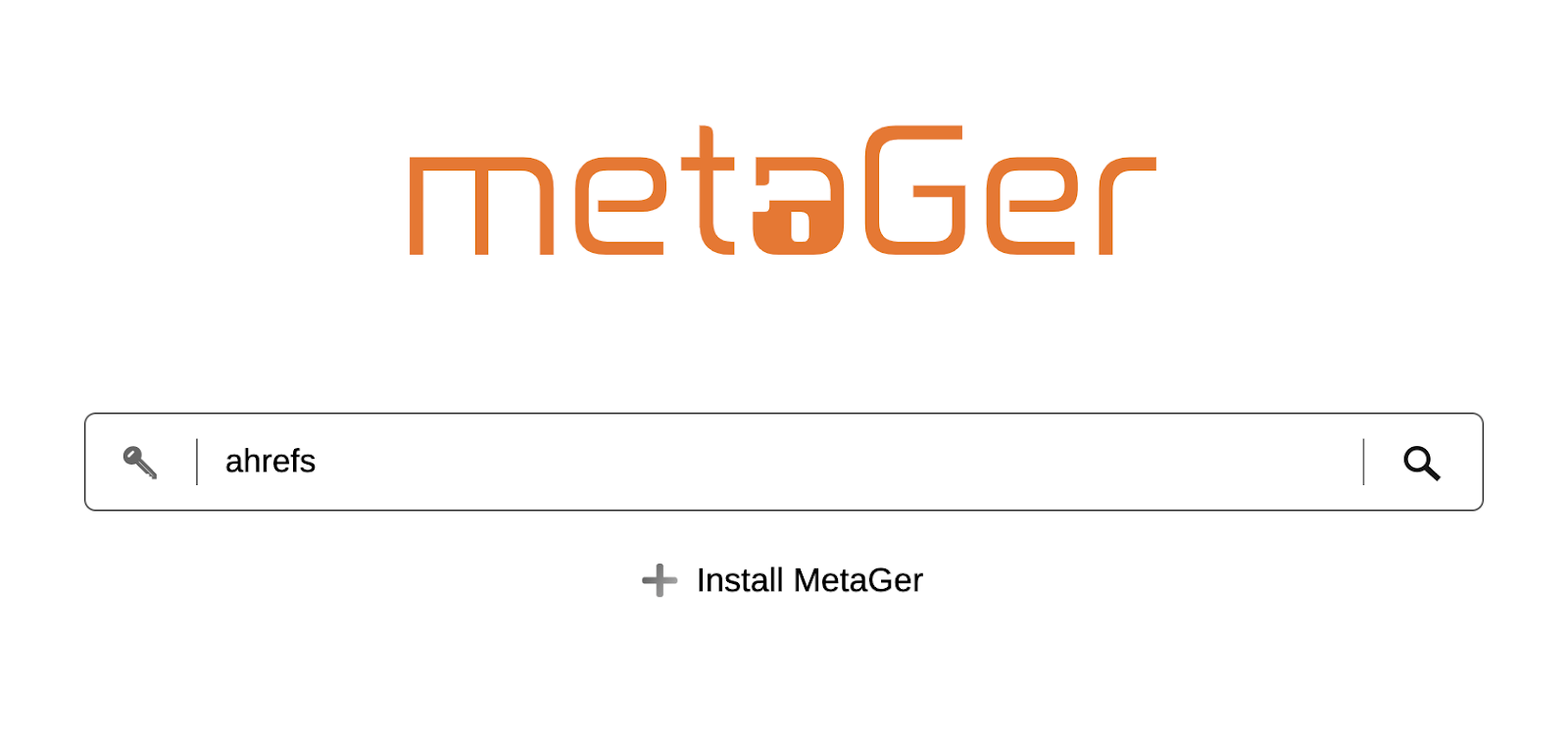
MetaGer is a Germany-based, open-source metasearch engine. Like Ecosia, its servers run on renewable energy.
Results are pulled from Scopia, Bing, OneNewspage, and OneNewspage (Video), so they’re pretty timely. You can also deselect the search engines used or create a blacklist of websites in the settings.
I appreciate how transparent MetaGer is in its handling of user information, from queries to maps. Still, it’s not without caveats: The search engine stores your full IP address for 96 hours, and your name and email address are kept if you fill out its contact form.
However, it does use an anonymizing proxy that ensures you retain full control over your data.
Feature spotlight

The “Did you know”’ box (to the right of search results) offers tidbits about MetaGer and how to refine your searches. You can also click on the text to view the full list of tips.